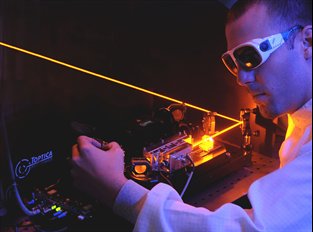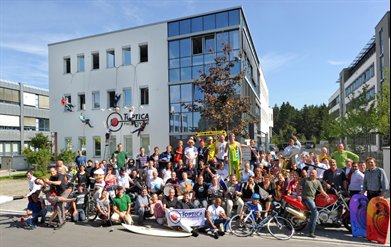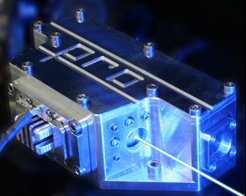Toptica Photonics 
TOPTICA Photonics is a privately held laser manufacturing company located in Munich-Graefelfing, Germany. More than 125 people develop, produce and provide research grade lasers for scientific applications as well as industry grade lasers for OEM integration. Key technologies comprise tunable single frequency diode lasers from 190 nm to 2880 nm, ps and fs pulsed fiber lasers from 488 nm – 2100 nm, multi-color laser engines, and THz systems for frequency-domain or time time-domain spectroscopy.
Emerging from a scientific environment about 17 years ago, TOPTICA has become the home for many graduates. Many of our customers and a significant portion of our staff emerge from the quantum optics community. Physicists and engineers – with or without Ph. D. – are found in management, production, service, SMP (sales, marketing and product management) and in the R&D (research & development) department which consists of ~ 45 people. High-tech environment, a scientific atmosphere and the professionalism of a well established industrial company are the breeding grounds for challenging projects, exciting tasks and – last but not least – a lot of fun (www.toptica.com).


Specialized Laser Systems

Quantum technology sensors like atom interferometers or atomic clocks require ultra-stable cw laser sources that have to be tuned to a specific wavelength and precisely frequency stabilized. Key characteristics of these lasers are mechanical stability, locking stability and mode-hop stability, especially for transportable or portable sensors. In the proposed project, an ultra stable blue/uv laser including frequency stabilization shall be developed.
The current plan is to realize a “hands-off”-like single frequency laser at 421 nm with > 10 mW output after single mode polarization maintaining fiber. Two alternative strategies shall be followed, one based on frequency-doubling of an IR laser, the other one based on new technologies with blue/uv laser diodes.